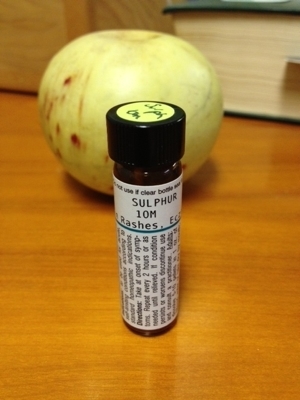Money vs Health 2, at the AVMA
Do you remember the raw food proposition that the AVMA passed over the Summer? Saying, “Raw food isn’t good to feed your pets,” they surprised no one, right? (See my earlier post(s) on this)
Well, now homeopathy is on their table, as a result of a “white paper” they’ll consider in January 2013, saying homeopathy is “ineffective” and therefore shouldn’t be practiced by veterinarians.
Right to the Source
The source of said “white paper?”
Anonymous.
Uh, yeah. Really gives you a feeling of confidence when someone attacks a 200 year old system of medicine that’s repeatedly been demonstrated to be safe and effective, and fails to sign their name to the attack, doesn’t it?
But — You Spoke to the Experts, Right?
How many veterinarians who have been trained in homeopathy and practice it regularly in the real world were consulted by the anonymous author before issuing said “white paper?”
None. Zip. Nada.
Sigh. The Skeptics Are Back.
This kind of action is actually not uncommon in the skeptic’s realm. They are given to hyperbole, distortion of facts, negation of large amounts of evidence that doesn’t support their position, and specious arguments.
Of note, right within the halls of conventional veterinary medicine, in one of their most revered journals, the Journal of the American Animal Hospital Association (JAAHA), two papers have been published on homeopathy showing its efficacy.
One was a clinical trial on lameness in dogs [4. Effectiveness of the Homeopathic Preparation Zeel Compared with Carprofen in Dogs with Osteoarthritis. Authors: Neumann S, Stolt P et al. Abstract: The authors compared the symptomatic effectiveness of a complex homeopathic preparation Zeel (1-3 tablets orally per day depending on body weight) to carprofen (4 mg/kg body weight) in dogs (n=68) aged >1 yr diagnosed with osteoarthritis in a multicenter, prospective, observational open-label cohort study in 12 German veterinary clinics. The active treatment period was 56 days. Symptomatic effectiveness, lameness, stiffness of movements, and pain on palpation were evaluated by treating veterinarians and owners. Clinical signs of osteoarthritis improved significantly (P<0.05) at all time points (days 1, 28, and 56) with both therapies. At the end of the treatment period, effectiveness was comparable in both groups. Both treatment regimens were well tolerated with only three treatment-related adverse events, all in the carprofen group.] treated with a combination homeopathic product and comparing outcomes to a conventional drug (the remedy gave equal results as the drug, minus the “treatment-related adverse events”).
A second was a case report of a dog who’d been unsuccessfully treated for a fungal nose infection [5. Clinical Resolution of Nasal Aspergillosis Following Therapy with a Homeopathic Remedy in a Dog Authors: Epstein S, Hardy R. Abstract: A 6 yr old, male, neutered Weimaraner was treated homeopathically for nasal aspergillosis after failing to respond to two treatments of topical (intranasal) clotrimazole and oral amoxicillin trihydrate/clavulanate potassium. Computed tomography, rhinoscopy, fungal culture, and cytology previously confirmed the diagnosis. At presentation for homeopathic treatment, the dog had aggressive left-sided sinusitis and rhinitis with destruction of nasal turbinates and severe bouts of epistaxis. Erosion and depigmentation of the nasal planum were evident. After two treatments with homeopathic aurum metallicum, resolution of clinical signs occurred and clearance of the aspergillosis organisms was documented by computed tomographic scan, rhinoscopy, and histopathology. Homeopathic aurum metallicum may be beneficial in treating cases of canine nasal aspergillosis.] with conventional drugs who was then cured by a colleague of mine with a single remedy in only two tiny doses.
Daily Evidence
Far and away more important to me than any clinical trials, as valued as they may be to the so-called scientists, are the daily results I see in homeopathic practice, as I pass the 20 year mark as a homeopathic vet. It’s abundantly clear to me that these highly diluted remedies can cure very serious, deep seated diseases.
And in patients who don’t display placebo effects!
Sick animals are perhaps the best proof out there that homeopathy works, and works well, when used by trained individuals.
Animals are elegant in their simplicity: they either get well or they don’t when they are given a medicine! Any kind of medicine.
When they don’t respond to a homeopathic remedy, it means I’ve gotten the remedy wrong, and I need to re-study their case and try again.
And when they do get well, they often do it in dramatic ways, with Whole Animal responses, always gratifying to see.
Real World. Real Results.
Just last week were two cases in point.
Rodney, the oversexed pup with diarrhea
Rodney, a Shepherd mix dog, came with a complaint from his owner of loose stools, present for the past 4 days.
Of note in taking his case:
- His stools were foul smelling for a guy fed wholly on a raw diet (his owner remarked that other raw feeders were telling her this shouldn’t be — and they were right!).
- Eating eggs makes his stool looser.
- He had a very coarse coat, almost like straw.
- Rodney was too itchy (though, interestingly, he’d not yet been vaccinated).
- He was given to humping legs, very sexually (and he’s only four months old!).
- Rodney hated to be bathed. Big struggles in the tub.
- His eyes discharged yellow pus, and sometimes just clear tears.
Rodney’s symptoms all lined up quite nicely with the homeopathic remedy sulphur, and he got a single high potency dose.
[Note to skeptics: this remedy was diluted so far (10M = a 1:30 dilution repeated 10,000 times) that there couldn’t have been any physical sulphur left to measure in the granules I poured on his tongue]
I saw him for his follow up visit last week, exactly a week after this dose was given.
Here’s what changed:
- His stools got normal after a few days, and stayed that way till I saw him.
- The bad stool odor disappeared.
- Eating eggs had no impact on his stool.
- His coarse coat was nearly gone. In a week. You could see a shine in it, absent when he first came to see me.
- He’s still mildly itchy, 3 on a 10 scale.
- He’s still oversexed, humping my leg with gay abandon.
- His eyes had less discharge, and it was no longer pus, just brown or clear.
Only thing new in his world: a highly, highly diluted dose of a remedy called sulphur.
Is Rodney cured? Too soon to tell, but I’m guessing he’ll need another remedy, likely something other than sulphur, and time and symptoms will tell us when and what that will be. His owner will update me next week.
Roxy, the epileptic Golden Retriever
Roxy began grand mal seizures two and a half years before I saw her the first time, three weeks ago. She’s been on anti-seizure drugs the whole time, and her owner came to me to see if there were some natural options for her disease. I told Jane that homeopathy would have a good chance at curing Roxy and getting her off the drugs, but it wouldn’t be easy and it would take time.
Interestingly, sulphur was the remedy Roxy started on as well, but, in the face of two seizure drugs going into her body daily, I chose a different potency, called LM 1, that could be gently repeated and still have an effect even in the midst of the drugs.
I saw Roxy last week, after we’d given a few doses of the remedy, stopped to evaluate by email, and then resumed her dosing every other day after we’d seen her positive response. She remained on her drugs for these past two weeks.
Here’s what Roxy’s owner had to tell me:
- Her head tremors were gone, and her legs hadn’t trembled for several days (these were both very frequent before the remedy).
- Roxy no longer ran anxiously into furniture or walls (this had been happening for two weeks prior to admission, and Jane had had to calm her out of these bouts and help her relax).
- Restless pacing bouts at 3:00 am, that had been happening regularly, had stopped. Gone.
- Licking fabric to the point of drenching it, spaced out, “not there.” Less. No more wet puddles on the couch.
- Slipping, falling, “doing the splits,” and unable to rise without help had become less. The dog walker (who saw her less frequently than Jane) said, “She’s so much better!” Now she can ease herself down when she gets weak.
- Exertion of a five minute walk used to be too much: Roxy would have a hard time rising, get a vacant look, seem “spacey.” She can do 20 minutes now before this comes, and that’s 20% better per Jane.
- Her bad breath had lessened 80%.
- Roxy had been gassy, rumbling and farting with a foul odor. It went away.
- She’d stare, almost unconscious, disoriented, “confused,” and used to do this throughout the day. Now, it’s only after lots of exertion and after her evening raw food.
How diluted was this remedy Roxy’s been getting? 1:50,000, and that’s further diluted whenever Jane mixes her dose, 10 drops into a half cup of water.
[Roxy’s next step: we’re weaning her off the seizure meds she’s been on for two and a half years. The expectation is that her remedies will cure her and she’ll never need drugs for this condition again. I’ll keep you posted.]
The Take Away
So, when I see things like this in my animal patients, on a regular basis, do I question whether homeopathy works?
No. It’s just plainly apparent that it does. Animals don’t make this stuff up! Or have some “placebo effect” [“My owner is giving me drops, therefore, I feel better!”]. Nah.
What will the AVMA decide next month about homeopathy’s place in veterinary practice?
I don’t really care. I won’t stop practicing this amazing modality no matter what the ruling. How could I? Homeopathy allows me to give hope to people whose animals have been impaired by conventional medicine, let alone not cured by it.
Pitting Money vs Health
Oh, and, as I’ve pointed out in the prior AVMA post, you can usually safely “follow the money” to understand motivations behind trying to enforce regulations on the public.
The anonymous source of the “white paper” on homeopathy?
A veterinarian from Connecticut.
Just guessing, but I suspect he practices conventional medicine and has a building to pay for.








Hi, I am at a loss. My poor Bassador (dog) has aspergillosis. Lots of mucus/blood and blood clots.
Did 1 treatment with vet, broke my bank.
Put him on aurum metallicum, milk thistle, tumeric/prebiotics, not helping much.
What can I do for him ?
He is in great health, 7 years old.
My heart is broken.
Thanks for any feedback
Hey, I recently got my cat taking some sulphur lm1. Can you let me know what the uses for it are?
They told me that i can put 10 drops in a half cup of water and give him 1cc of it and throw the rest that was made up away. Can I drink it?
Oh, goodness. If it was prescribed by a trained homeopathic vet it’s for your cat and the issues presently bothering him/her. But it’s for the “whole cat,” not just a symptom. Sulphur is a very broad homeopathic remedy, and not one to take lightly yourself. Could be completely wrong for you and cause upset if taken repeatedly. You’d want to get a human homeopath on board to prescribe for you, Carly. Serious medicine, homeopathy.
Hi Dr.
I run a small cat shelter .recently we saved a stray male cat, that had gotten sick and had some kind of stomach illness. Vomiting And diarrhea .we took him to a local vet who found him to be fiv positive. The vet wanted to put him to sleep. We decided against it as this poor guy needs a chance.
He received a depo shot and and convienia. The cat is doing very well now , we want to get him neutered soon, and can’t seem to find any reliable info on if we should get him any vaccines or not?? please I know you are busy but I respect your opinion ,what should we do?
Thank you very much,
Diana Swiderski
President
Ray of hope inc.
Ps the cat is about 2-3 yrs. old.
Hi Diana,
This guy has an automatic waiver: he’s got chronic disease already, and any illness is a contraindication to vaccinate. I’d seek the help of a vet homeopath and see if you can cure him.
Dear Will ~ I stumbled across your page through a series of events. First, a message from holistic equine practitioner, then friend on FaceBook, which prompted me to write a quick emergency last minute blog on the subject at hand. From there, I tweeted on Twitter to get some traction about the issue of the anti-homeopathy vote. Unbelievably, Dr Jeff Feinman responded to inform me that things were going well and Homeopathy would have a fair review at the CAVM meeting. Thus, the outcome will be a more educated and informed veterinary medical community and more natural health choices for pet owners. I enjoyed reading your article and wish you well in 2013. Blessings, Debby
Hi Debby, and welcome.
I’m probably less interested in the outcome than a lot of my colleagues, but that’s largely bristling on my part. I choose to practice a safe, effective medicine that’s been around for two centuries, and helps animals that have been left in the dust by the AVMA types. That won’t change regardless of what the AVMA rules about it.
I visited your site, and glad you’re online bringing out the great results that homeopathy can bring. As you’ve wisely observed, animals are the very best example that puts to rest the silly idea of homeopathy being effective solely due to placebo effects! I bring that up regularly.
Best to you and all you care for in the coming year.
Dr. F.
Hi Dr. Will,
Sooooo great to find a sane, homeopathic vet!!!! I’ve used nothing but alternative health practices on myself for 35 years and at 67 (tomorrow) I’m enjoying terrific health and energy. I know with human homeopathic practices, the MD’s and FDA are constantly trying to get them stopped and I’m sure it mostly comes down to money. I’ve been to an MD twice in 35 years and it was just an “oh let’s see what they say” checkup.
My 2 wonderful Shih Tzus are another story. They both have had bladder infections and bladder stones and I tried to use what I would have used on myself with no succes for them. So I went to a local vet and he did help but I want them on the homeopathic path. I’ll be contacting you one day soon to help with their health.
I found you while researching raw foods for my dogs and I’m in the process of swtiching them to the raw. I can’t tell you how hopeful I am and how excited to know that I finally, finally have someone to turn to for real help.
Thank you!! Linda
Hi Linda, and welcome to the Vital Animal Pack (tribe? still playing with who we should be called in here…)!
You and I think a lot alike. I’ve been to an MD once in the last 20 years I think, and that was for a regulation I had to follow. And I’d not use one for much other than emergencies, given any say in it.
You’re making a good move with the switch to raw. Good for bladders and the rest of the dog attached to those organs.
Happy to help with the deeper issues that remain with homeopathy. Just shoot me an email or head over to the Contact page when you are ready.
I am originally from Germany and soon after I came to the US became the human companion of two feral born indoor/outdoor cats.
After first learning about “declawing” and “debarking” and other horrible mutilations, and that in this country dogs and cats are killed in “shelters” and kept in tiny cages until then, and last but not least end up in dog and cat food as meat meal, I am not surprised about anything anymore.
Telling me that raw food and homeopathy doesn’t work is like telling a Chinese that herbs and acupuncture don’t work. Or that the internet is a magic trick and scam or electricity is just in our imagination or…
Why should a doctor who mutilates animals for money and calls it “care” understand homeopathy or what real food is and that food doesn’t grow on store shelves and that cats and dogs are not consumer articles but sentient beings like us, just different species, and are to be treated with respect.
Years ago when I first became a cat companion I had a long and emotional discussion with a local vet and walked out of there completely stunned and irritated and angry.
Since then I’ve learned alot about cats, veterinarians, money, laws, and also read up a little on homeopathy and other home remedies for common injuries and ailments and the vet (a different one, not any better) is for neutering, rabies shot, and emergencies I can’t handle myself. And of course I lie about what I feed the cats or myself for that matter.
Yours is the only blog I read in terms of cat care and if I were anywhere near Texas you would be the ONLY veterinarian I would ever consult.
You even look in your photo like you really care!
Keep it up!
Thanks for your kind thoughts, Ulrike.
In America, we are definitely not setting the bar very high for our level of animal care. I know Britain has long banned such procedures as tail docking and ear cropping and declawing, and I suspect, from your missive, that your home country does as well. I do hope we catch up, sooner than later.
In general, I find conventional medicine really only useful in helping in accidents. Anything else, and we are usually putting animals at greater risk by consuming conventional medicine, as is true for ourselves.
And, it it’s any help to you, I do consult with clients all over the globe by telephone/Skype appointments, so don’t ever feel you are without homeopathic help where you live. In addition, there are more vets trained like I am now then ever, though we are still in a rather small minority, I’m afraid. My Resources page lists the AVH and AHVMA sites, which both have lists of alternative vet med practitioners of various kinds.
Best of health in the new year to you and those cats in your care.